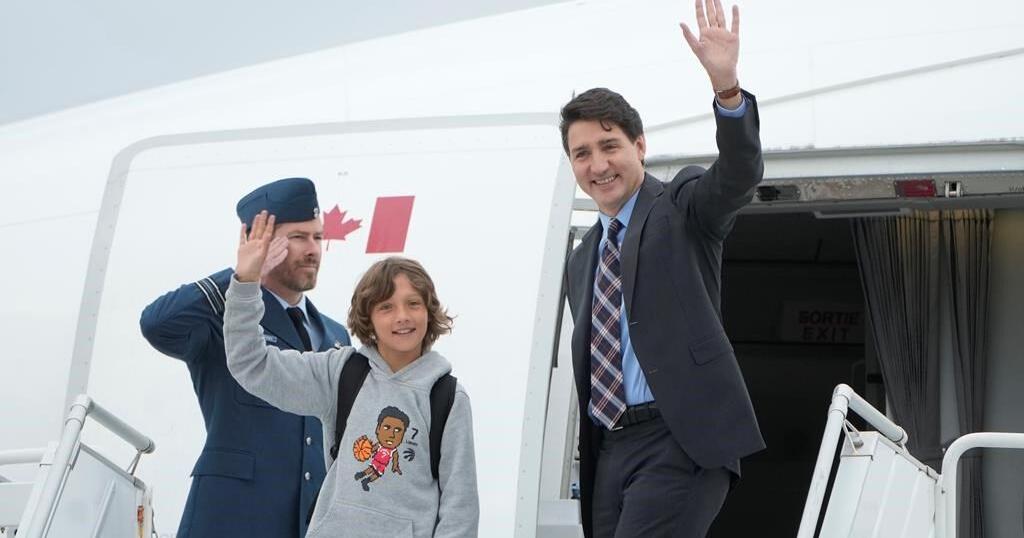OTTAWA – Prime Minister Justin Trudeau is in Laos this week to meet with southeast Asian leaders — the Liberal government’s latest effort to strengthen Canada’s ties in a region with strong Chinese influence.
The visit on Thursday and Friday marks the third consecutive time Trudeau has attended the Association of Southeast Asian Nations Summit, and one year since Canada established a strategic partnership with the regional bloc.
The association represents Malaysia, Indonesia, Laos, the Philippines, Vietnam, Thailand, Singapore, Brunei, Cambodia and Myanmar.
Government officials say Canada is increasing its presence in the region to build credibility as a reliable economic partner, noting ASEAN is one of the fastest growing economic regions with member states representing Canada’s fourth largest merchandise trading partner last year.
The visit also builds on the Liberal government’s Indo-Pacific strategy, which provides a roadmap to strengthen military and economic relationships in the region and counterbalance the influence of China.
Canada’s efforts are part of a larger Western push for stronger economic and political relationships with southeast Asian countries, largely to reduce reliance on Chinese goods.
Canada, the U.S. and the European Union have all taken steps to safeguard against perceived national and economic security threats from China, including imposing hefty tariffs on Chinese products such as electric vehicles.
A government official speaking on background said while Canada has not historically focused on Asia, the Indo-Pacific strategy has refocused the country’s global priorities.
Meanwhile, southeast Asian countries are also concerned about over-reliance on any global power, including China, for their economic security.
Tensions have increased in the region as China becomes increasingly aggressive in asserting its claims in the South China Sea, through which about US$5 trillion in global trade transits each year.
The sea passage is also believed to be sitting atop vast undersea deposits of oil and gas.
Aside from China, the Philippines, Vietnam, Malaysia, Brunei and Taiwan also have overlapping claims in the strategic waterway.
The official says bringing in Canada as a strategic partner elevates the relationship with the regional bloc, and helps those countries achieve their goal of economic diversification.
Trudeau and Japan’s new prime minister, Shigeru Ishiba, are the only G7 leaders expected to attend the summit.
The Canadian government is working to establish a free trade agreement with ASEAN and is in the final stages of negotiating an agreement with Indonesia. The free trade deal with Indonesia is expected to come together by the end of the year.
Trudeau’s trip marks the first time a Canadian prime minister has made an official visit to Laos, and also marks 50 years of bilateral relations with the southeast Asian country.
The prime minister, who is accompanied by Trade Minister Mary Ng, is also expected to hold bilateral meetings with leaders in the Laos capital, Vientiane.
While geopolitics won’t be the focus of the summit, the government is expecting issues such as the war in the Middle East to come up.
ASEAN includes several predominantly Muslim countries – such as Malaysia and Indonesia – which have opposed Israel’s military action in Gaza and have advocated on behalf of Palestinians.
This report by The Canadian Press was first published Oct. 9, 2024.
– With files from The Associated Press.
